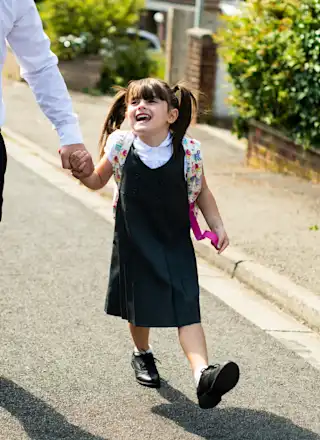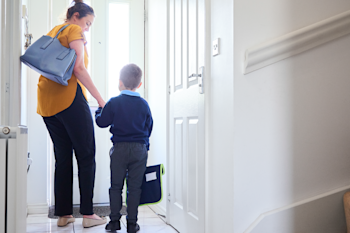Speech and language development for lockdown babies
By Carey Ann Dodah

The babies of lockdown are now starting school and focus is turning towards how the pandemic may have affected their talking and thinking skills.
Initial research, by the University of Leeds, discovered that reduced interactions with family members and the loss of access to services, such as health visitors, has had a serious impact on the speech and language of some of these children.
Delays in speech and language development can have a significant impact on a child’s learning. Studies have shown if early intervention isn’t undertaken, children can develop reading and writing difficulties, social and behavioural problems, and it may affect their capacity to learn and understand new concepts.
Demand from speech and language professionals is high with NHS England reporting 22,952 children waiting between 19 and 52 weeks for an appointment and 5,832 children waiting over a year.
All children develop differently and those starting school will have a vast array of skills that differ to other children in the class, especially because there can be almost a year’s age between them.

What should children be able to say when they start school?
Try this quick checklist to identify if you should seek further support.
Communication checklist for children starting school
A child can:
Communicate their needs - “I need help”, “I would like some water, please”
Explain how they are feeling - “I am hungry”, “My arm hurts”
Understand simple questions - “What animal is this?”, “Where is the pencil?”
Listen to stories that are 5 - 10 minutes long
Retell a simple story in their own words
Tell their own simple story
Recognise their name when it is written down
Understand and follow simple instructions - “Let’s sit on the mat”, “Walk slowly”

How to support speech development at home
The good news is there’s lots that we as parents can do to support speech development at home.
Talk throughout the day: On the journey to and from school talk about what you see around you. If you’re travelling in the car, turn off the radio and talk about your day and what you will do while they are at school. Coming home, ask them about their day and what they’re looking forward to that evening.
Give them the words: If you know your child is trying to say something through action, try giving them the phrases. “Are you telling me that you’re hungry? Let’s try saying it together - I’m hungry!”
Read together: Read age-appropriate books. Point to the words as you read and to the pictures while naming them. You can also ask your child to tell you the story or talk about the characters' feelings. Wordless books are great for this!
Use different voices: Use different voices and lots of actions to make reading, singing, and playing more engaging.
Alter your volume: Try whispering to gain your child's attention. Loud voices can be over stimulating and cause some children to stop listening.
Reduce background noise: Turn off the TV or other devices to make it easier to listen to each other.
Praise speech: If your child doesn’t want to speak, don’t force them. However whenever they use their voice let them know that they did really well.
Play with your child: Explore Learning has put together a guide 'Let's get talking in Early Years'. You’ll find a wide selection of ideas of how to add chatter into your daily playtime together.
If you’re worried that your child is struggling to talk then help is available:
Try the progress checkers created by Speech and Language UK. They will give you an idea of how your child is developing and what help is available if you need it.
Chat to your teachers at school. Do they share your concerns? Have they found some techniques that are working in the classroom?
Book an appointment with the Speech and Language UK enquiry service for a free 30 minute consultation to discuss your concerns.
Consider a tutor. Tutoring is a highly effective way to bridge the gap between school and other speech and language support. Both face-to-face interactions and one-to-one online tuition can benefit children who struggle to talk.
Cancel anytime
No joining fee
In centre or online
Memberships to suit you
Cancel anytime
No joining fee
In centre or online
Memberships to suit you
Cancel anytime
No joining fee
In centre or online
Memberships to suit you




